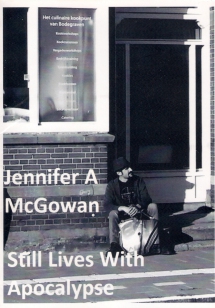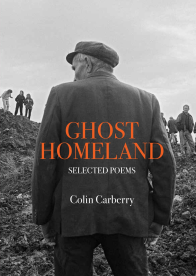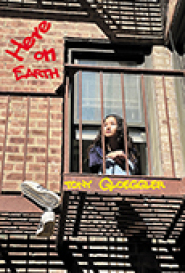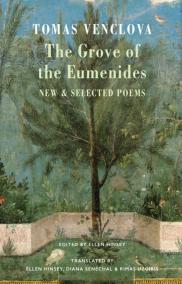
Jennifer A McGowan Still Lives with Apocalypse, Prolebooks, 2020. 29pp. £.5.50.
McGowan’s exuberant two-part pamphlet was winner of the coveted Prole Pamphlet Competition in 2019, and published the following year. It is a stimulating and haunting one-sit read. Part one is a sequence of twelve poems, each featuring Jesus, though whether as protagonist or alter ego is, at times, ambiguous. Some aspects of this Jesus reflect – or refract – his namesake; his all-knowingness in understated final lines: of the rebuilding of Notre Dame post-fire, “It’ll take more than three days, he says, wryly.” I especially liked the offering of both dove and its olive branch to his frustrated teachers of stage magic (‘Penn and Teller Try to Teach Jesus Stage Magic’). This is a Jesus who has experienced and expects suffering; after burning his draft cards with a bunch of hippies, “Jesus looks at the sky and tries/not to think of dying.” In an almost metaphysical juxtaposition of disparate worlds in ‘The Woodcutter Sees the Green Man But Never Thinks Of Jesus’, the saviour “…humps a faggald of wood onto his back;/walks home, dreaming of thorns.” This reference to not only the crucifixion but the Old Testament Binding of Isaac story shows McGowan’s ability to smuggle references to a host of subject matters into more everyday situations.
Mc Gowan’s Jesus has cosmic compassion, walks on water, and through the fourth wall. Here is poetry that leaps off the page, rapidly shifting from sharp insight (“Here is a church, here is a steeple, he thinks – /open the door, where are the people?”) to the apparently banal. But the simplest scenario is used to comment on societal and human frailty – the pints pulled by Jesus are for striking miners, even if they are paid with “leftover pieces of silver.” In the final poem of this section, ‘Buddha Meets Jesus Around Midsummer To Do Some Catching Up’, the shunned Mary Magdalene “does not know Siddhartha left/child and family unsupported” (in the time-honoured manner of the self-righteous ascetic.)
McGowan yokes together startlingly different worlds; her Jesus fits right into the langours of Chinese love poetry with the same ease as he hangs out with a bunch of dope-smoking teens. There is never a dull moment. It manages to be both very funny and very disturbing.
Part Two, entitled ‘Mud Angels’ also flirts with Christian images (salvation in exchange for helping out a “raggedy-ass crow”, a jaded shrine saint at the end of her shift.) The coherence of this set is less evident but each poem asks to be savoured.
McGowan’s lexis is deceptively simple; the language is accessible rather than challenging, and shows its craft in the tight control of well-chosen punctuation, line breaks and variable stanza lengths. The simplicity of the language makes it an effective vehicle for multi-layered ideas. In ‘The Woodcutter…’ the curt “And then/nothing” in the penultimate stanza stops you in your tracks after the florid second stanza. ‘How It Is’ uses short lines and an easy conversational tone to set up a beautiful, hallucinatory vignette of a story.
This slim volume, with Brett Evans’ customary high production values, punches well above its weight. Buy it before it sells out!
Hannah Stone
To order this book click here
Hannah Stone is the author of Lodestone (Stairwell Books, 2016), Missing Miles (Indigo Dream Publishing, 2017), Swn y Morloi (Maytree Press, 2019) and several collaborations, including Fit to Bust with Pamela Scobie (Runcible Spoon, 2020). She convenes the poets/composers forum for Leeds Lieder, curates Nowt but Verse for Leeds Library, is poet-theologian in Virtual Residence for Leeds Church Institute and editor of the literary journal Dream Catcher. Contact her on hannahstone14@hotmail.com for readings, workshops or book purchases.
Colin Carberry, Ghost Homeland,
Indigo Scotus Press, 2019.
ISBN: 978-1-9160753-1-3. €12.00.
Ghost Homeland is an intense exploration of home, manhood and bridges between different roots and histories. Carberry creates mysterious and tantalising images of origins in which one is deeply part of, but somehow always looking in from the outside; a homeland of political struggle and strife; and homeland of masculinity. The collection is restless and energetic and is deeply enriched by the poet’s experience across Ireland, Canada and Mexico.
Carberry’s lyrical poetry, often quite disarmingly feels like a chat in the pub with a rich array of characters. In “The Critic”, the man tells the poet, ‘... wiping stout from his mouth with his sleeve/ of his coat, he took his parting shot: ‘Son/ a little madness every now and then’,/ he grinned, ‘is relished by the wisest men’’. In “One Dark Night”, the narrator tells the reader, ‘I will sit, a half comatose Winston,/ until all hours, sinking in glorious gin”. A culture of masculinity permeated with alcohol resonates throughout, the poet looking in, seemingly confident, but equally searching for meaning among these other male figures. Only with alcohol does the poet penetrate this world of men, in “Contact”, ‘... the sweet booze infiltrating my veins like heroin/ as we hit the Falls flat out: I was in’. The honesty and subtle vulnerability that Carberry expresses through these poems is refreshing as it is illuminating.
Additionally, beyond the homeland of masculinity, the poet explores the different physical homelands across the world from Mexico, to Ireland to Serbia. The echoes of war and violence are explored throughout the book. In “The War”, we are told that ‘... for those who bore / witness the war will never be over.’ A glimpse of a life-changing momentary event stands out in “Containment ‘76”:
...He was shot dead
mid-sentence, live, his red blood
flowing into the gutter to
the strains of ‘Coronation Street’.
Carberry celebrates those involved in the ostensibly ineffectual struggle for justice in “Blood Sports” where freedom fighters are likened to the brave bulls in the fighting ring:
‘Resist with all your heart!’ And my heart soared
like flame in a furnace as I recalled
Them: the guileless, battered faces of those
Who spoke out, all heart, and were crucified.
Similarly in “Labyrinth”, the poet begins with this line: ‘There will never be a door.’ While it may seem that the poet has given up hope in a mixed-up world, in “The Bad Saint” this hope has been replaced with an acceptance that in this life, ‘with nothing to bow down / to I’d have to bear up under myself’, a battle with one’s spirit for an acceptance that everything can be okay as it is, and will be okay, even when it is appears that all is broken.
Ghost Homeland
is a rich collection that builds connections between
different times, worlds and cultures. This book of strangers, countrymen and the self is at its most potent when we read of the displacement we all feel between our lost homes and pasts. I recommend
his book as a treasure trove of experiences across the world, the poet as a historian, observer of the world, and as a man in a strange and often violent place, surrounded by opaque
masculinity.
To order this book click here.
Jack Little is a British-Mexican poet, editor and translator based in Mexico City. He is the author of Elsewhere (Eyewear, 2015) and is the founding editor of The Ofi Press: www.ofipress.com
Paul Summers, the dreamer’s ark,
Blueprint Poetry Press, 2020.
ISBN: 971-1-9162025-3-5. £5.00.
Blueprint is a very new pamphlet imprint to come out of the North East of England, created by poets Jo Colley and Julie Hogg. Their aim is to ‘publish poets who are already published but who may have an odd collection of poems they don’t quite know where to place – perhaps the poems don’t fit with their usual way of writing, or would get lost in a full collection.’ So far they have four titles, including Angela Readman’s Cooking with Marilyn, a poem sequence about Marilyn Monroe. Each one is beautifully produced in a subtly sparkling blue jacket.
This one by Paul Summers is a very special thing. You can almost smell the salt air of the river mouth when you open it and turn the pages. Paul Summers, a poet and artist who lives where the Tyne meets the sea and vice versa, is currently obsessed with liminals and the littoral, making a daily pilgrimage to the river’s rocky shoreline almost every day for over five years. He has been searching for and finding remains from a Victorian shipwreck there: nails, hooks and shards of wood, metal, mysterious artefacts slowly piecing together that ‘wraith cartography’. His art is allusive, Rothko-like, and so are his words, like a voice talking low against the raw wind in a private monologue. Nevertheless these are poems, finely-balanced, which evoke a profound and vividly-expressed love and respect for this chosen place. Their rhythms echo the lap of the tide and the constant interchanges between land and water. Here is one of the poems in its entirety:
blanc
today, this river
robbed of distance
a wraith cartography
consigned to our ears
sanderling and curlew
defining its edges
the fog-horn boom
the breath of tide
a solitary gull
imagining blue
Such a rich collection, with lots of ‘bonny bits’ to appreciate! Paul’s poems and his art are both striking and memorable – he has a New and Selected out, entitled union, and his latest full collection from Smokestack is straya. This slim yet substantial pamphlet however is a slant glimpse into his imaginative world and poetic concerns, and well worth exploring. Well done to Blueprint.
Pippa Little
To order this book click here
Pippa Little is a poet, editor, reviewer and tutor. She lives in Northumberland and works as a Royal Literary Fellow at Newcastle University. Her second full collection, Twist (Arc Publicatons), was reviewed in the August, 2017 issue




